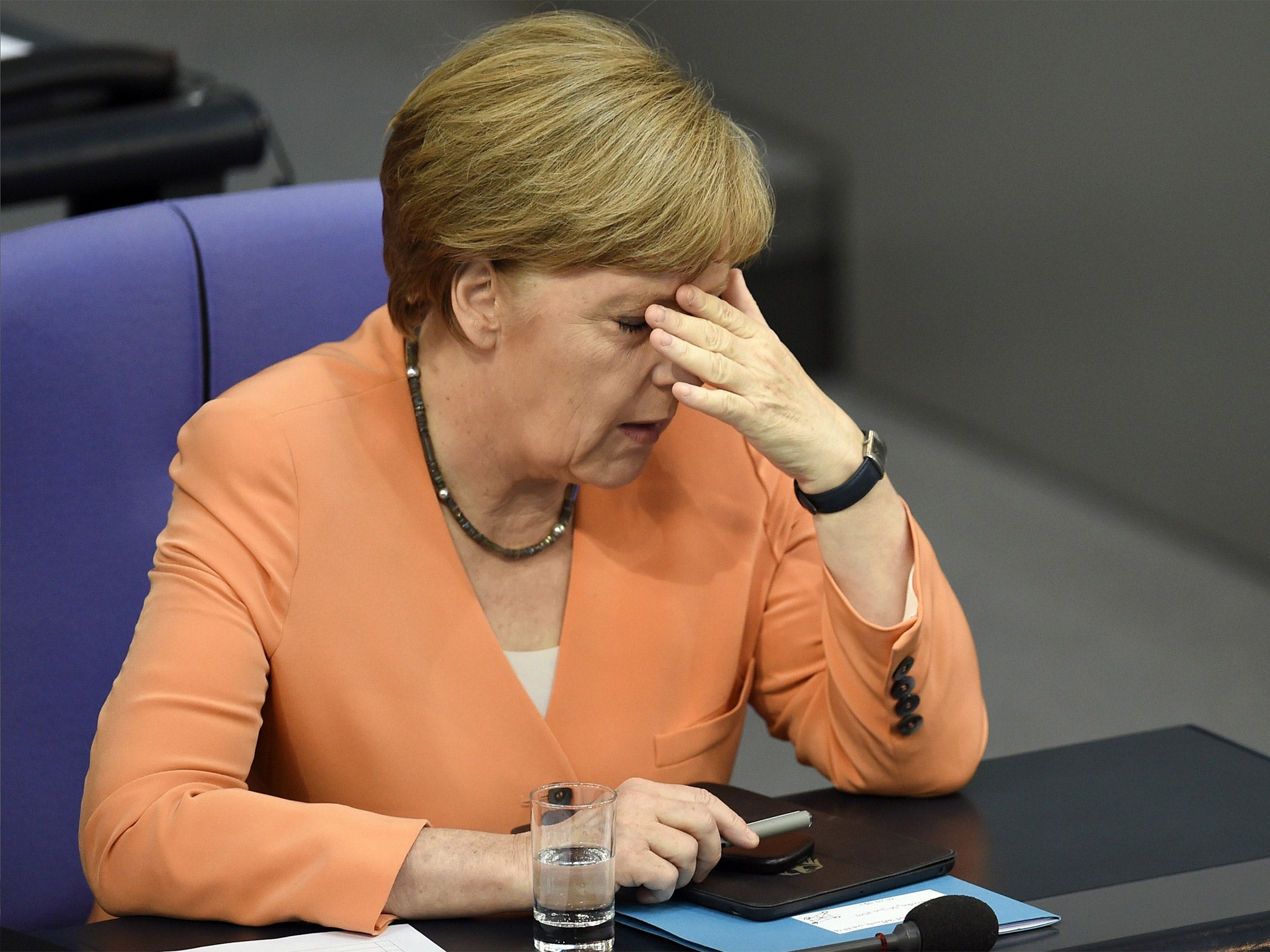Uncertainty over Greece’s future membership of eurozone causes rift in Angela Merkel's party
Merkel is said to be desperate to ensure that she does not go down in history as the Chancellor who initiated the break-up of the eurozone

Rifts are appearing in Chancellor Angela Merkel’s ruling coalition amid mounting uncertainty over Greece’s future membership of the eurozone, and questions over Athens’ intention to go ahead with its weekend referendum.
Ms Merkel is said by insiders to be almost desperate to ensure that she does not go down in history as the Chancellor who initiated the break-up of the eurozone – a project that was initiated by her political mentor, Germany’s “unification Chancellor” Helmut Kohl.
She is also anxious to uphold her reputation as “Queen of Europe” who, during her uninterrupted decade in power, has earned respect at home and in most economically successful European Union countries as a leader who can solve disputes and promote stability.
In a keynote speech to the German parliament, Ms Merkel insisted that the “door is still open” for further talks with Athens and said that the problem with Greece was not about the details of a reform package, but “about the fundamental direction Europe is taking”.
However, reflecting growing discontent over her stance towards Athens within her own conservative Christian Democratic Party, Ms Merkel’s Finance Minister, Wolfgang Schäuble, lambasted Greece’s leftist government and appeared to rule out any possibility of further EU concessions for Athens.
The possibility of a grass-roots rebellion over Greece now haunts Ms Merkel. Several Christian Democrat MPs have already declared that they are fed up with Athens and complain they cannot justify to their constituents further German-funded bailout payments in response to demands by the Greek Prime Minister, Alexis Tsipras.
“The situation has worsened dramatically under Tsipras,” Mr Schäuble said. “His government has done nothing since it came into office. It has only reversed reforms. Now we do not know whether the referendum is to go ahead or not. You can’t expect us to talk to them in this situation.”
Mr Schäuble described the Greek government’s recent letter setting out its demands as a document which “failed to provide further clarity” and which offered “no basis” for serious negotiation. He warned Greece not to “destroy the credibility of the European project” and said it would be “extraordinarily difficult” to find a solution to Greece’s problems without a minimum of trust.
Germany’s main objection concerns Greek demands for a debt write-off. If granted, Berlin fears the concession would prompt similar demands from other economically failing eurozone states and create a domino effect which would severely damage the euro.
The German government is reported to have already drawn up contingency plans for an eventual Greek exit and privately most German MPs concede that Europe could weather such a scenario with ease.
But for Ms Merkel, a “Grexit” would be a severe blow to her reputation in Europe. It would also damage her standing as one of her country’s most popular post-war leaders at home and could affect her chances of remaining Chancellor after the 2017 election.
Public anger over Greece’s failure to implement reforms demanded by the International Monetary Fund and Europe is mounting in Germany, with a growing number of MPs starting to echo such discontent.
Ms Merkel continued to suggest that the Greek crisis represented an opportunity for Europe. “I don’t want us just to get through the crisis somehow. I want Europe to come out of this crisis strengthened,” she insisted. Yet even she appeared to acknowledge that there were limits to Germany’s and Europe’s readiness to compromise with Athens. “A good European is not somebody who seeks an agreement at all costs,” Ms Merkel said.
Subscribe to Independent Premium to bookmark this article
Want to bookmark your favourite articles and stories to read or reference later? Start your Independent Premium subscription today.

Join our commenting forum
Join thought-provoking conversations, follow other Independent readers and see their replies